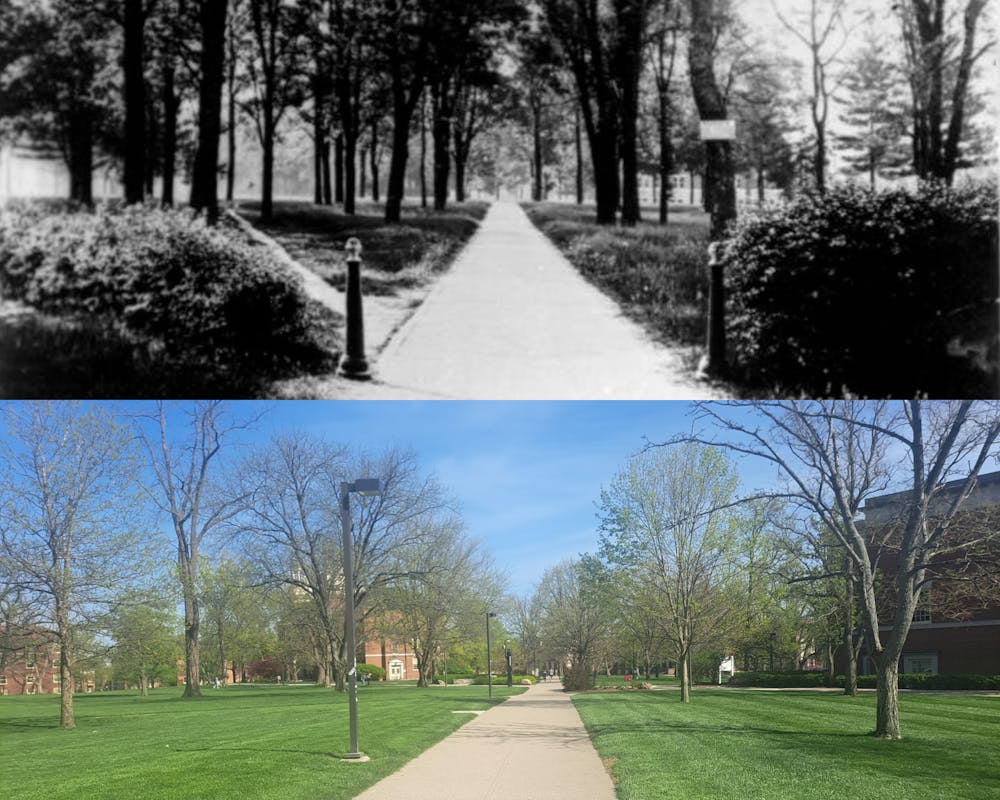Sometimes we can’t live up to our promises. Sometimes we commit to things we can’t carry out.
In my first semester at Miami University, I have noticed a few contradictions between what Miami says it values and the reality of its actions. I felt the best way to show these contradictions would be through photos – to let Miami’s actions speak for themselves.
When I walk past Upham Hall, I read the engraving on the wall that praises the “beautiful trees” of Miami. Then I look around. There are trees, certainly, but very few are true, old-growth beauties. Many look like they were planted in the last few decades.
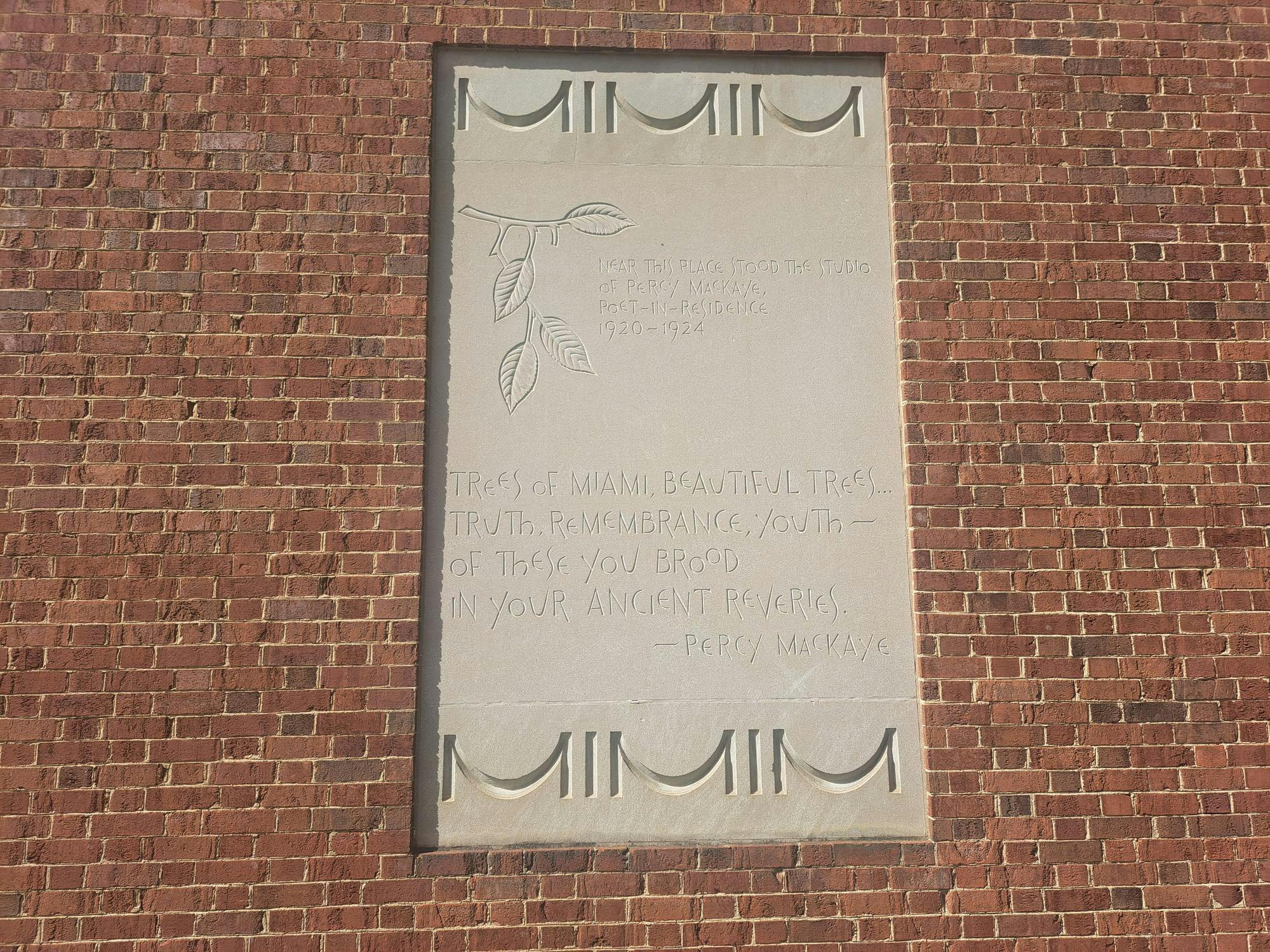
An engraved quote on an exterior wall of Upham Hall praises the “beautiful trees” of Miami University.
I imagine what the trees were like when Percy MacKaye, the author of the quote engraved on the wall, was at Miami. It appears that Miami has become significantly less forested, at least along Slant Walk, in the past 200 years.
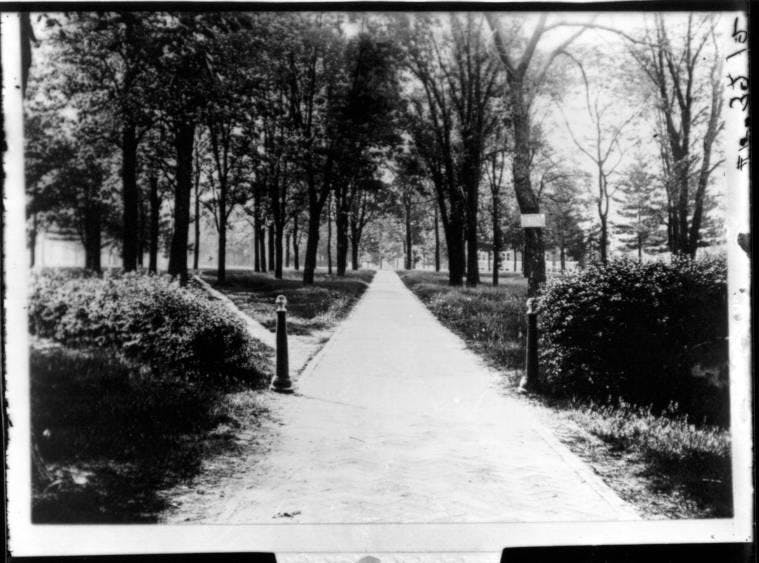
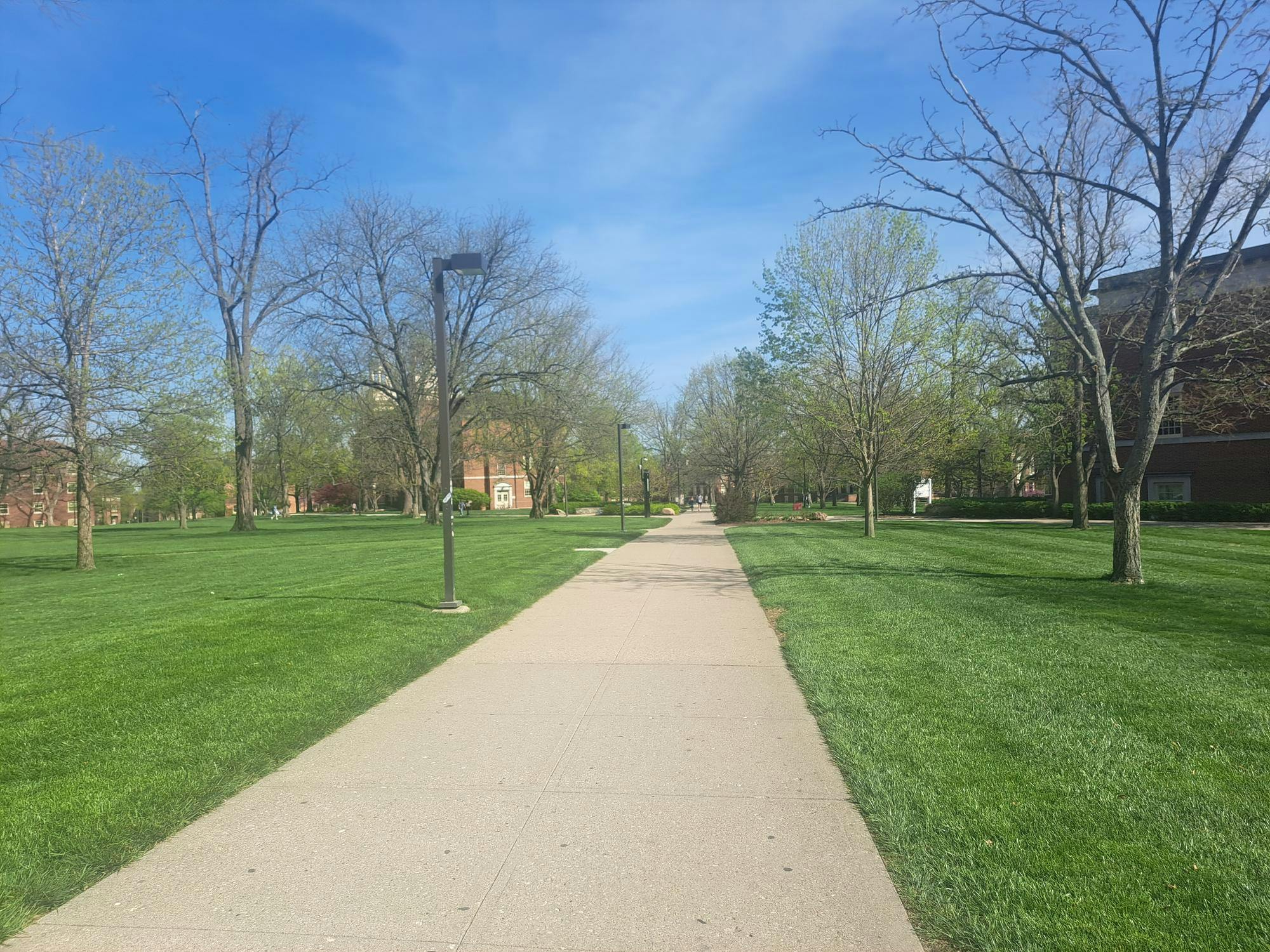
Slant Walk, currently, has many fewer trees than it did in 1899.
As a humanities and social sciences student, I am seeing programs around me struggle with funding, even as the university launches into a new multimillion-dollar arena project. My fellow students are nervous about their departments being closed or their favorite professors being non-renewed. All the while, this pillar in the Armstrong Student Center reminds us of the importance of investing in education.
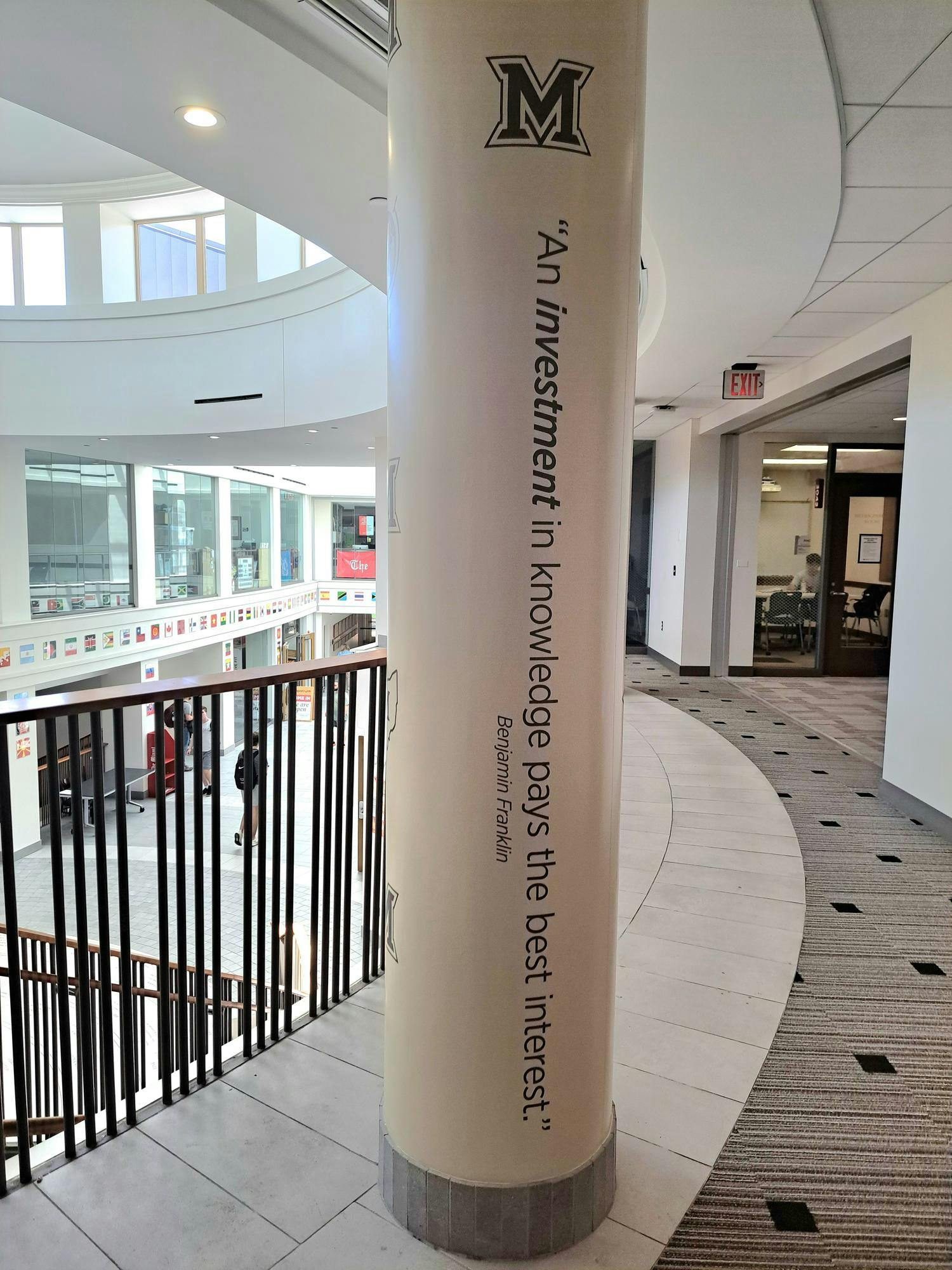
A pillar in Armstrong Student Center reads, “All investment in knowledge pays the best interest.”
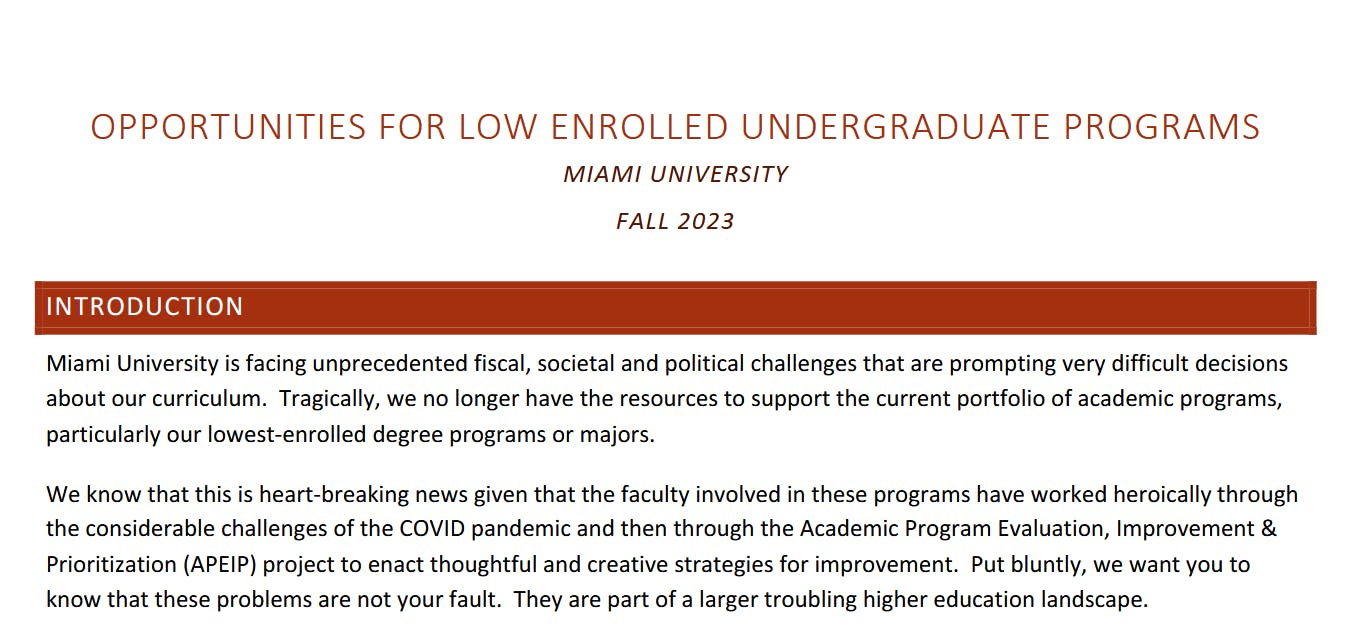
Enjoy what you're reading?
Signup for our newsletter
Miami has an admirable sustainability plan, but it has some major blind spots. One such issue is the bags that come with every Bell Tower meal. The bags are recyclable, but there are no recycling bins available to students inside the Bell Tower Commons.
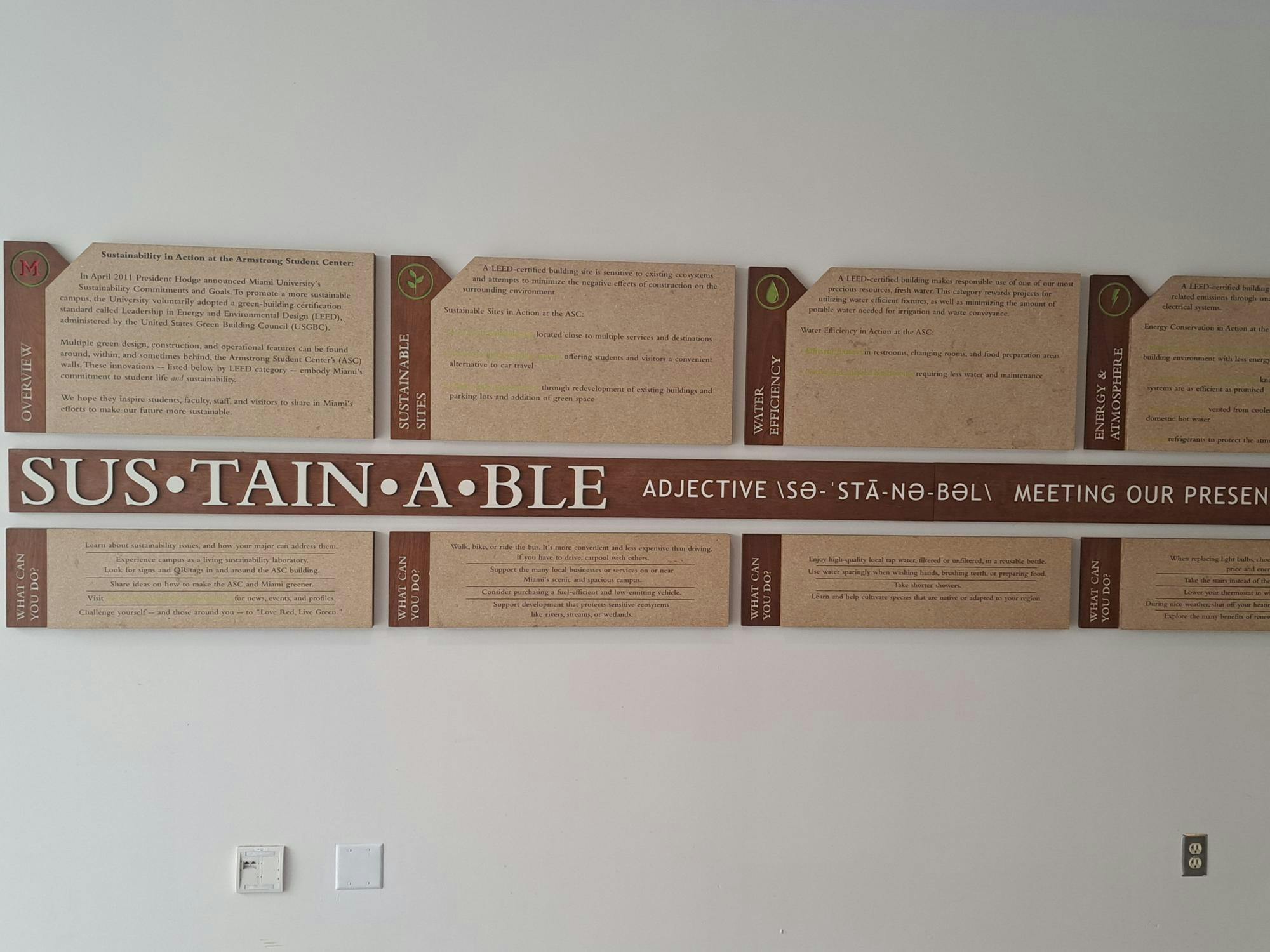
A plaque in Armstrong Student Center details Miami’s sustainability plan.
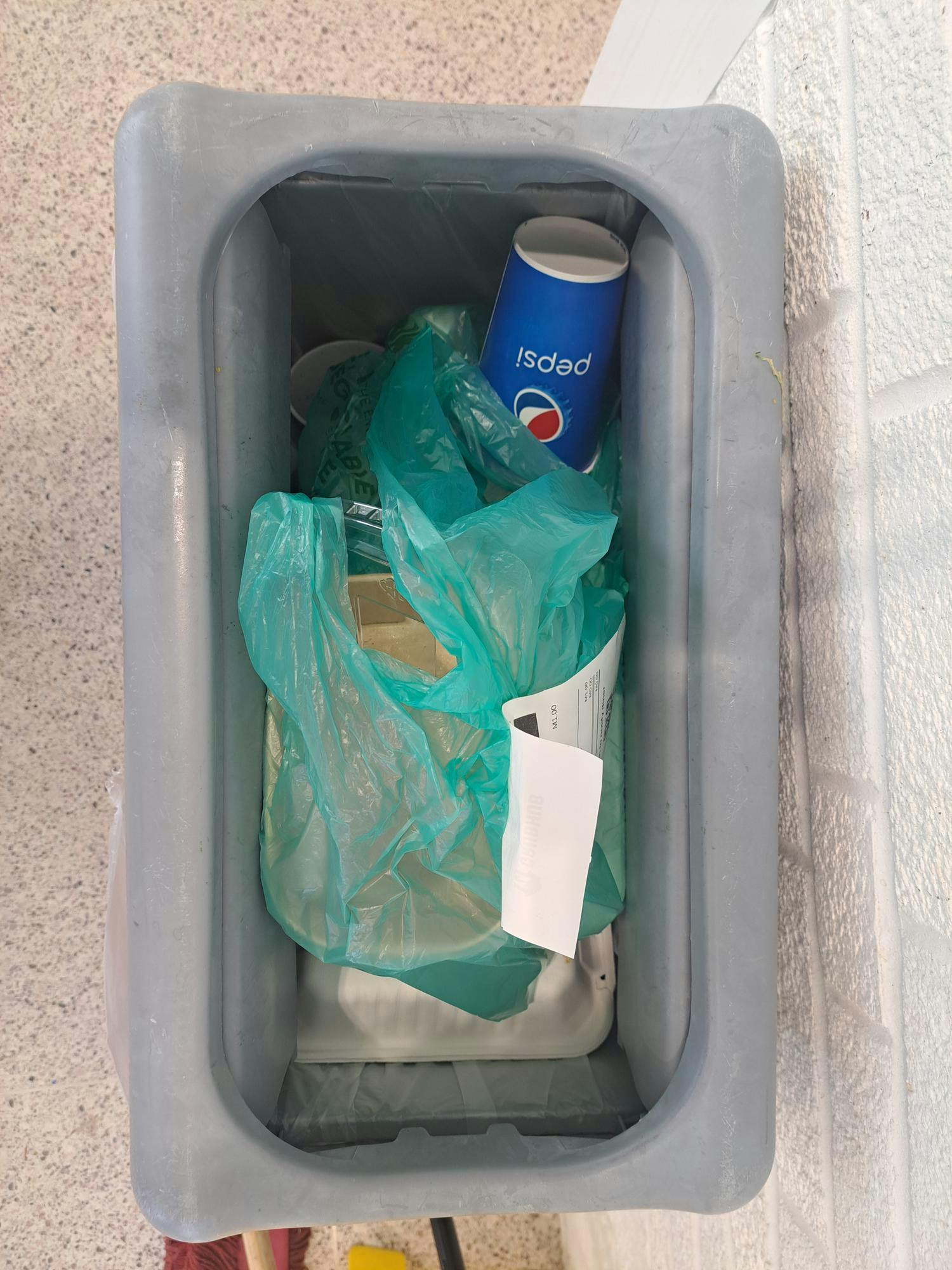
Trashs can in Bell Tower are often full of trash enclosed in recyclable green bags because there are no recycling bins in the building.
Miami operates on a code of Love and Honor. This code states, “I welcome a diversity of people, ideas, and experiences.” However, when Senate Bill 1 was signed into law this past year, Miami didn’t stand up for its diverse population. Instead, it shuttered three programs that support underrepresented students.

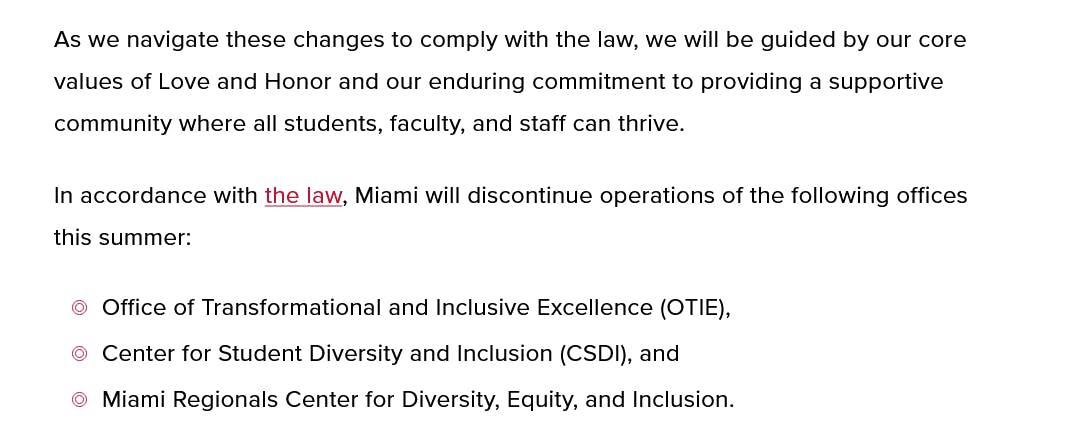
Miami is not the first, last or only institution to fail to live up to its ideals. However, as a student here, I want to see it succeed. I believe we can do better, and we should commit to backing up our words with our actions.
Keep the old-growth trees that make this campus beautiful, fully fund academic programs, truly commit to reducing plastic waste and make Miami into an institution where a diversity of people are welcomed and supported.
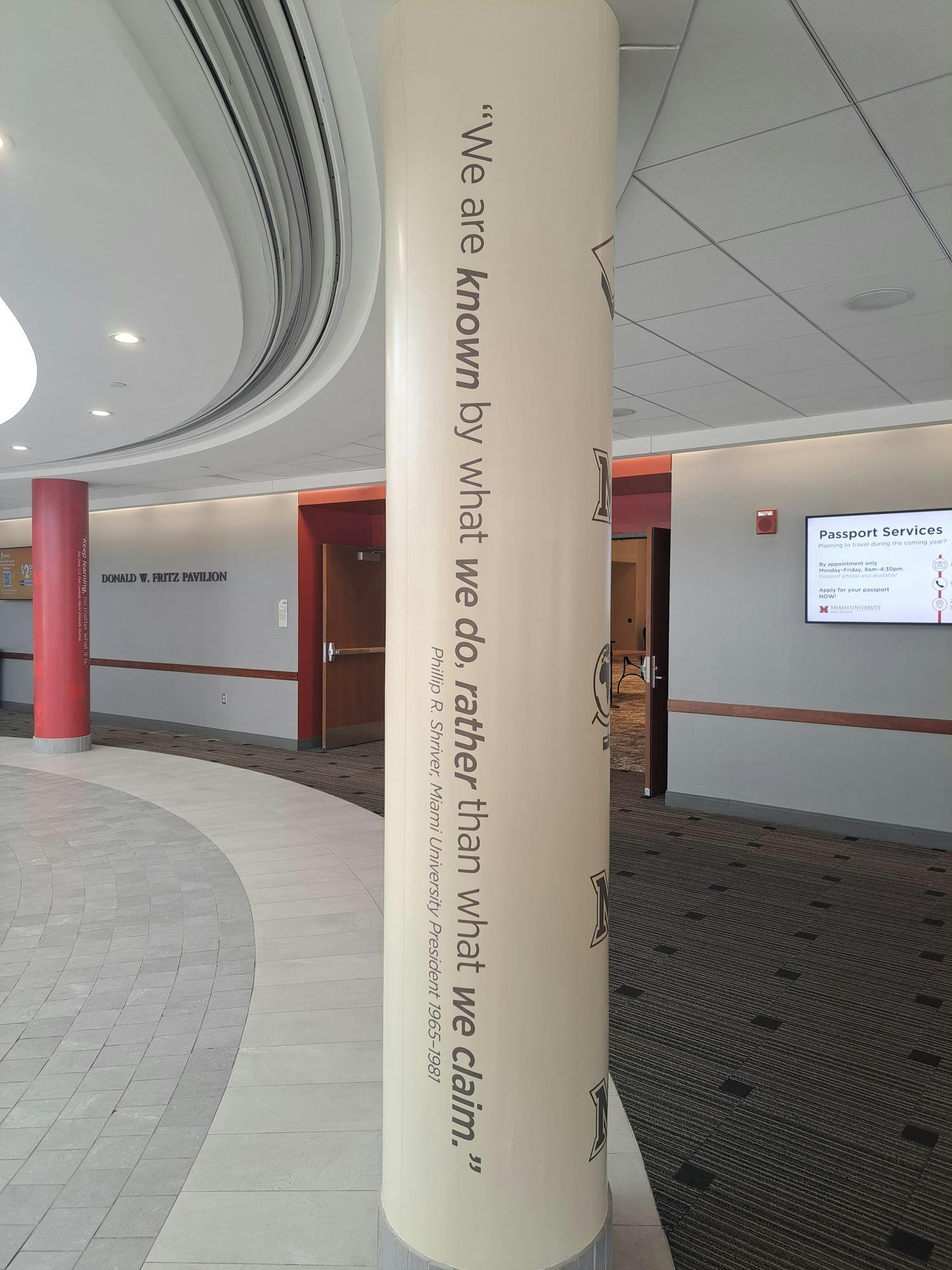
A pillar in Armstrong Student Center reads, “We are known by what we do, rather than what we claim.”
Eliza Sullivan is a first year double majoring in diplomacy and global politics and Russian, Eastern European and Eurasian studies. She writes for the opinion section of The Miami Student. She is also involved with Model Arab League and Miami University College Democrats.

